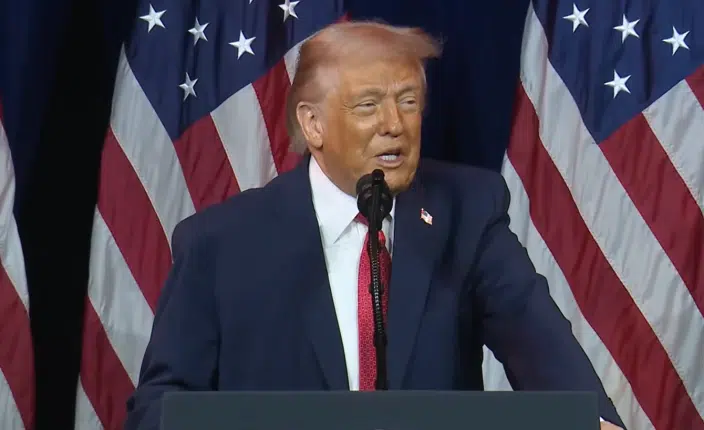 By Rebekah Rast — The U.S. Senate has approved of a $109 billion bill that provides two years of funding for transportation and transit projects around the country.
By Rebekah Rast — The U.S. Senate has approved of a $109 billion bill that provides two years of funding for transportation and transit projects around the country.
The bill may or may not be taken up by the U.S. House Representatives depending on if they choose to write a separate House bill, but hopefully what will be left out of any final version is an amendment by Montana U.S. Sen. Max Baucus. His amendment funds the Land and Water Conservation Fund (LWCF) to the tune of $1.4 billion for fiscal years 2013 and 2014 — quite a jump from the $323 million it is currently receiving in FY 2012.
Why does the LWCF need such a boost from Congress?
This Fund helps purchase and protects lands across the country. Evidently the line of thinking within the Senate is more U.S. lands are in need of being purchased and protected by the federal government.
The federal government owns almost 650 million acres of land in the U.S. That’s about 30 percent of all the land area in the nation and includes national parks, forests and wildlife refuges. In other words, it’s equivalent to 1 out of every 3 acres in the U.S. — 1 out of every 2 acres in the West, says Congressman Rob Bishop (R-UT), a member on the Natural Resources Committee and ranking member on the Subcommittee on National Parks, Forests and Public Lands.
And now the Senate thinks the government needs even more land.
Chuck Cushman, executive director of the American Land Rights Association located in Washington State, has dedicated his life to stopping federal land grabs and limiting trust funds such as the LWCF. He says this big boost of funds from the Senate endangers all land owners in or near federally protected lands.
“Inholders, owners of private property within federally owned areas, will be threatened first,” Cushman warns. “This is no Smokey the Bear coming in, this is heavy-handed, land-buying gangsters that don’t care how many landowners get hurt.”
These massive land grabs have had proven negative impacts on job markets, economic development, education and tax revenues for those states that house these lands.
For example, the state of Utah is already at a disadvantage when it comes to funding for its education system. About two-thirds of the state, almost 70 percent, is owned by the federal government. Though the federal government said much of this land would be sold upon the state achieving statehood and that 5 percent of the proceeds would go directly to fund education, it has yet to happen.
With two-thirds of the land already swallowed by the federal government, Utah’s education revenue comes from the land it has left. Of that land that is left, about only about 7 percent is designated as school trust land, Cody Stewart, legislative director for Rep. Bishop, told Americans for Limited Government (ALG) in a previous interview. The rest of the land is at risk of falling into the hands of the federal government.
Furthermore, other Western states face the dilemma of housing lands that are so protected by the Endangered Species Act (ESA) and forestry laws that nothing can be done on them.
The logging industry in Washington State is virtually gone. Because of protected forestry laws, small towns that survived off of the logging industry were choked out.
“The forest service holds life or death over the timber industry,” says Don Todd, director of research for ALG. “They have leases that decide where to sell timber or whether or not a road can be built to get the timber out.”
Another issue facing states like Washington, Oregon and California is the ESA. Since 1990, the Northern spotted owl has been on the endangered species list. This owl also contributed to the demise of the logging industry in all three states since the forest land where the owl lives wasn’t allowed to be touched.
Some land the government owns is put to good use for people to enjoy, like the national parks. But those parks come at a cost. In 2010, it was announced that the National Park Service needed about $9.5 billion just to clear its backlog of the necessary improvements and repairs. At a time when our existing national parks are suffering, does it make sense for the federal government to grab new lands? How does the government expect to fund any of its new acquisitions?
Likely the same way the government pays for everything else it acquires — with a printing press or an IOU.
“If anything the federal government should be evaluating lands that could be sold back to the private sector rather than spending more money we don’t have to build federal land fiefdoms,” says Bill Wilson, president of ALG.
Cushman reiterates his original warning, “There is no oversight here. This is like handing a blank check over to the LWCF,” he says.
Cushman and landowners across the country hope that in the U.S. House of Representatives’ transportation bill no such handout is given to the LWCF.
“This takes huge amounts of land off the tax base for communities,” Cushman concludes. “It does not create jobs nor does it lower the deficit. I just don’t understand how the government owning more land helps anything.”
Rebekah Rast is a contributing editor to Americans for Limited Government (ALG) and NetRightDaily.com. You can follow her on twitter at @RebekahRast.






